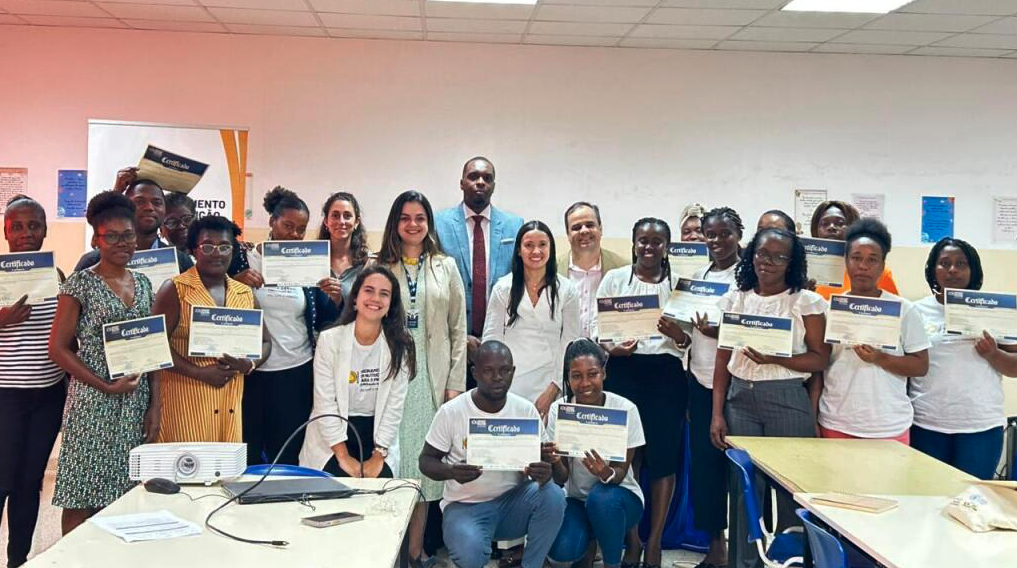
Fifteen professionals from the National School Feeding and Health Program (PNASE) in São Tomé and Príncipe completed training in school nutrition this week, conducted by Brazilian nutritionists as part of South-South cooperation.
During two weeks of in-person activities in São Tomé, participants received theoretical and practical training on planning nutritionally adequate menus, using local products, food safety, and nutritional assessment of students, in addition to visiting schools and rural properties that supply the program.
Promoted with support from the National Fund for Education Development (FNDE), the Brazilian Cooperation Agency, and the WFP Center of Excellence against Hunger in Brazil and the São Tomé and Príncipe Word Food Programme (PAM), the training is part of a strategy to strengthen PNASE, a program that currently provides daily meals to nearly 49,000 children in preschool and elementary school.
FNDE Food and Nutrition Security Coordinator Daniel Bandoni, who was part of the Brazilian delegation, highlighted the relevance of the initiative in the context of international cooperation. For him, school feeding is a powerful tool for combating hunger and promoting education, and this exchange of knowledge with São Tomé and Príncipe is a concrete example of solidarity and joint construction of sustainable solutions.
The initiative is the result of commitments made following an official visit by a São Tomé delegation to Brazil in August 2024. The training will now continue with a remote technical monitoring phase.




